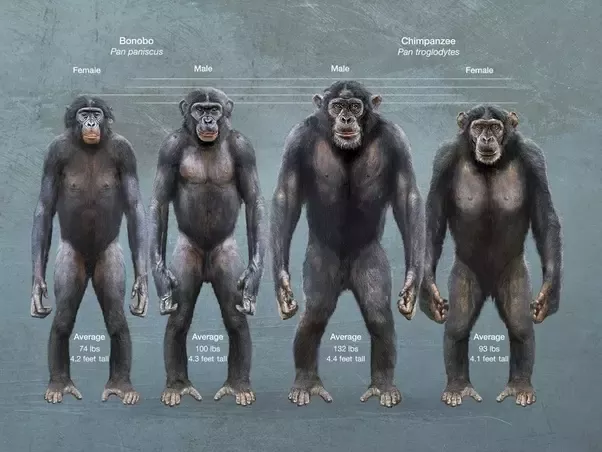Humans are generally considered the most intelligent species on Earth, primarily due to our ability to reason, think abstractly, communicate with complex language, and invent and use sophisticated tools. However, it’s important to note that intelligence is a complex and multifaceted concept, and there are many different types of intelligence that different animals excel at.
Evolution of human intelligence

- Brain architecture refinements: Subtle alterations in our brain structure make us smarter than other animals, with more neurons in the outermost layer of our cerebral cortex and thicker nerve insulation providing faster signal conduction.
- Enhanced cognitive capacities: Human intelligence is an upgrade of non-human primates’ cognitive abilities, showing a continuous rather than drastically advanced form of cognition.
- Problem-solving skills: Animals like primates, pigeons, and crows demonstrate considerable problem-solving abilities, but humans excel in complex tasks like composing music and solving equations.
- Synergy in information processing: The human brain combines information from different regions to enable complex cognitive functions like attention, learning, working memory, and social cognition, exhibiting higher levels of synergy compared to other primates.
- Efficient information network: Our highly efficient information-processing network enables secondary routes for complex cognitive functions, possibly explaining enhanced human cognitive capabilities.
Overview of animal intelligence
- Octopuses: Known for their curiosity and problem-solving abilities, octopuses have been observed unscrewing containers and recognizing individual humans.
- Chimpanzees: One of our closest genetic relatives, chimps show high intelligence in cognitive tests, even outscoring college students in some cases.
- Goats: Skilled in problem-solving, goats have been successful in figuring out complicated contraptions for food rewards and remembering them months later.
- Crows: These clever birds have demonstrated tool use abilities, successfully solving puzzles that even human children struggle with.
- Elephants: With strong self-awareness and compassion, elephants work together to solve problems within their herds.
- Rats: Known for their maze-solving capabilities, rats can also learn symbolic languages.
- Dolphins: These marine mammals exhibit decision-making based on their knowledge and self-awareness.
- Gibbons: Capable of producing over 20 different sounds with specific meanings, gibbons showcase a unique form of communication intelligence.
- Domestic pets: Our furry friends display intelligence by communicating their demands and manipulating their human companions.
Are Humans Really the Smartest Animal?
Are humans really the smartest animal on Earth? Although we often consider ourselves to be the most intelligent species, some experts challenge this belief. For instance, Douglas Adams, the famous author, humorously ranked humans as the third-smartest species, with dolphins taking the second spot. When comparing brain sizes relative to body mass, dolphins, particularly bottlenose dolphins, are quite impressive. They possess advanced language comprehension skills and show a high level of self-awareness by recognizing themselves in mirrors.
Other animals that exhibit signs of intelligence include chimpanzees, elephants, rats, and even octopuses. Measuring intelligence in animals can be difficult and subjective, as it depends on various factors and indicators. While humans have achieved many milestones and are undeniably intelligent, it is important to recognize and appreciate the remarkable intellectual capacities exhibited by other species.
The Criteria for Measuring Intelligence
- Problem-solving skills: Animals who can figure out solutions to challenges, such as figuring out how to open a container or retrieve food from an inaccessible place, are considered intelligent.
- Use of tools: Animals that can employ objects as tools to achieve a goal, like chimpanzees using sticks to extract insects, exhibit a higher cognitive ability.
- Self-awareness: Recognition of themselves in a mirror or displaying an awareness of their own body indicates higher intelligence, such as in elephants and dolphins.
- Social skills: Cooperation and communication within a group to solve common problems demonstrate advanced intelligence, as seen in elephants and dolphins.
- Memory: The ability to remember past experiences or retain knowledge, as seen in crows and dolphins, indicates strong cognitive abilities.
- Learning ability: Animals that can quickly adapt and learn new skills or languages, such as parrots or rats navigating mazes, show remarkable intelligence.
- Individual recognition: Identifying and distinguishing between different individuals, like an octopus recognizing different humans, is a sign of cognitive capability.
Comparison of Human Intelligence with Other Animals
- Human Intelligence: Ranked third in the animal kingdom, humans are known for their exceptional language and problem-solving abilities, advanced use of tools, and capability to create complex social structures.
- Dolphin Intelligence: Dolphins, specifically bottlenose dolphins, have highly developed brains with advanced language comprehension, numerical understanding, and self-awareness. They can mimic each other or humans and teach each other new tricks.
- Elephant Intelligence: Elephants show advanced problem-solving skills, self-awareness, empathy, and impressive memory. They are known to use tools and exhibit complex communication patterns.
- Chimpanzee Intelligence: Sharing 99% of DNA with humans, chimpanzees have exceptional problem-solving abilities, advanced use of tools, and a sophisticated understanding of social structures.
- Octopus Intelligence: Known for their extraordinary problem-solving skills and adaptability, octopuses can solve puzzles, open containers, and navigate mazes, displaying impressive cognitive abilities.
- Crow Intelligence: Crows are highly innovative creatures, capable of advanced problem-solving, sophisticated use of tools, and complex communication patterns.
- Parrot Intelligence: Parrots, especially African grey parrots, are known for their advanced language comprehension, numerical understanding, and problem-solving skills.
Factors Affecting Animal Intelligence
- Social Complexity: Some animals, like primates, have complex social structures that require them to quickly understand and navigate social situations. This leads to the development of problem-solving skills and other cognitive abilities.
- Environmental Pressures: Animals living in challenging environments, such as harsh climates or scarce food resources, need to develop intelligence to adapt and survive.
- Cultural Learning: Animals that learn from one another and pass on knowledge through generations, like elephants and dolphins, can develop higher intelligence as they acquire new skills and information.
- Convergent Evolution: In some cases, intelligence may evolve independently in different species, like in cephalopods, which have a different neural structure than vertebrates.
- Brain Structure: The size and organization of the brain can affect cognitive abilities. Larger brains with more neural connections are often associated with higher intelligence.
The Ethics of Measuring Animal Intelligence
The ethics of measuring animal intelligence is a complex topic that raises many questions about how we perceive and treat animals. On one hand, it is fascinating to learn about the cognitive abilities of different species, but on the other hand, using intelligence as a yardstick to determine the value and rights of animals is often considered unfair. As experts like Edward Wasserman, a professor of experimental psychology, point out, intelligence and cognitive skills vary greatly among species, and it is nearly impossible to rank them in a hierarchical system based on their smarts.
Additionally, Kristin Andrews, a cognitive scientist and philosophy professor, stresses that animals are intelligent in the ways they need to be for their specific environment, making it futile to compare them. So, while gathering information about animal intelligence is essential to understanding the animal kingdom, it is important to approach this data with an ethical mindset that recognizes the unique talents and abilities of all species.
Conclusion
In conclusion, humans are often considered the smartest animals on Earth, primarily because they possess exceptional problem-solving abilities, advanced communication skills, self-awareness, and are highly adaptable. However, various other species also exhibit remarkable intelligence, including elephants, chimpanzees, dolphins, crows, and octopuses.
References:
https://thehumaneleague.org/article/animal-intelligence
https://science.howstuffworks.com/life/inside-the-mind/human-brain/humans-smartest-animal.htm

I’m Christopher Benjamin, a dedicated Animal Nutritionist at Ethos Veterinary Health with a Bachelor of Science in Animal Science from Michigan State University. My lifelong passion for animals led me to establish AnimalsData.Com. Here, I share expert advice, educational resources, and inspiring stories to empower fellow pet lovers worldwide. Join our community as we celebrate the beauty and diversity of our beloved animal companions!
